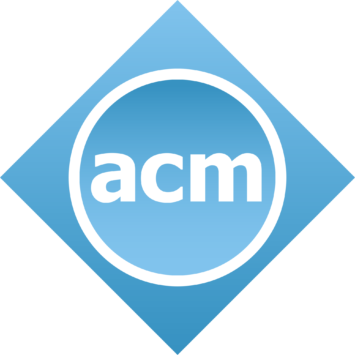ACM is widely recognized as the premier membership organization for computing professionals, delivering resources that advance computing as a science and a profession; enable professional development; and promote policies and research that benefit society.
ACM hosts the computing industry’s leading Digital Library, and serves its global members and the computing profession with journals and magazines, conferences, workshops, electronic forums, and Learning Center.
Facts about ACM and Its Membership
Awards
The A.M. Turing Award, presented yearly by ACM, is regarded as the “Nobel Prize of computing.” View the list of Turing and other ACM award winners and ACM Fellows.
Policies and Procedures
Read ACM’s Code of Ethics, Constitution and Bylaws, and other policy documents for the computing profession. ACM also has a Public Policy Office in Washington (USACM) dealing with US governmental and legislative issues.
ACM Officers
Biographical information on current ACM President, Vice President, Secretary-Treasurer, and Executive Director; ACM Past Presidents
Organizational Structure
Boards and Committees, and structure of ACM Volunteers and Headquarters departments. About the Office of Information Systems.
Regional Councils
SIGs
ACM’s Special Interest Groups are technical communities representing virtually every major area of computing.
Chapters
Hundreds of ACM Professional and Student Chapters provide opportunities for networking on a local level.
Joint Society Member Discounts
Other societies with whom ACM has reciprocal membership agreements
Affiliated Organizations
Other organizations with which ACM cooperates to advance the computing field.
ACM and IEEE-CS Cooperative Activities
History
ACM was established in 1947 with the creation of the first stored-program digital computer. Visit the ACM History and Committee pages for more information.
ACM Computing Classification System
ACM’s own taxonomy of the computing field
Annual Reports
Annual Reports of ACM and its Boards, Committees, and Organizations
Learn More











